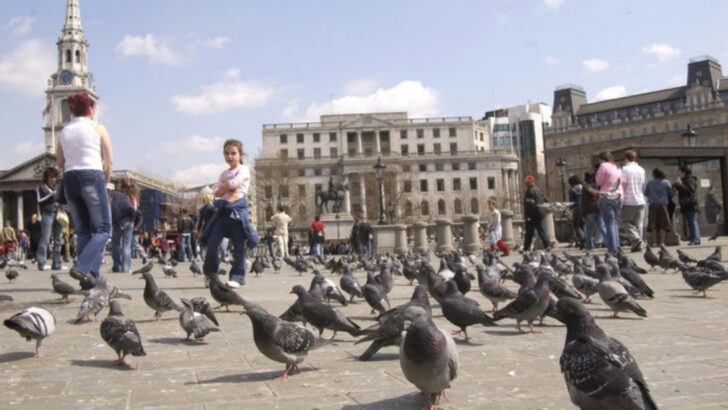That adorable face might be hiding a dangerous secret.
Not every animal that begs deserves a treat—and in some cases, offering one could spell disaster for both of you. From wild deer that turn aggressive to ducks whose diets can be ruined by a single slice of bread, feeding the wrong creature is more than a bad idea. It’s a recipe for chaos.
Yes, even the fluffiest, most Instagrammable animals can turn into trouble the moment snacks get involved.
Some will get sick. Some will come back with friends. And a few? They might come back mad.
Here are 19 animals you should never feed—no matter how cute, hungry, or persuasive they seem. Your fingers (and the ecosystem) will thank you.
Raccoons
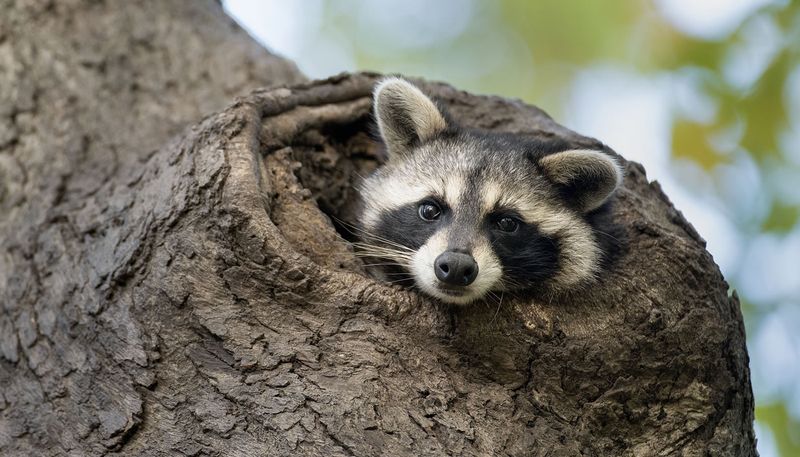
Raccoons might charm you with their intelligence and playful antics, but feeding them is risky. These nocturnal wanderers have complex diets that human food can disrupt. Offering them snacks can lead to dependency, making them less likely to forage naturally. Additionally, raccoons are known carriers of diseases such as rabies, which can pose a threat to humans and pets. It’s crucial to admire their acrobatics from afar, ensuring they maintain their natural eating habits and continue to play their role in the ecosystem.
Deer
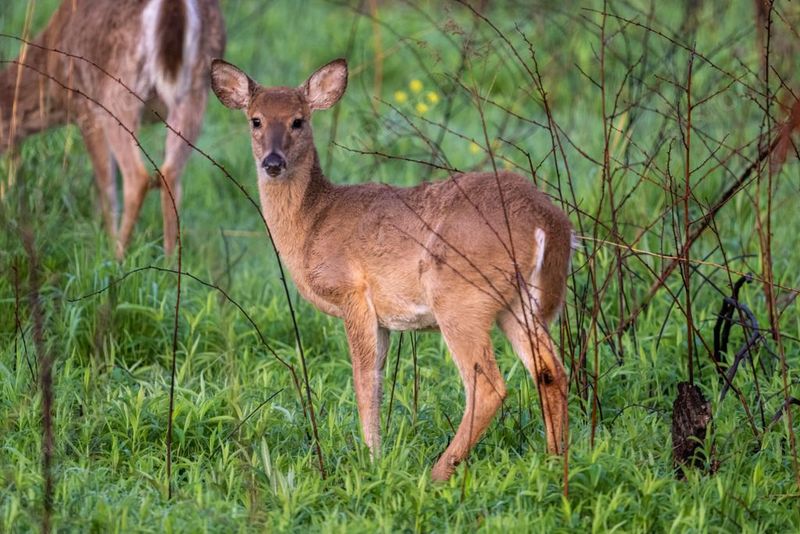
Deer are iconic symbols of grace and elegance, often seen grazing quietly in meadows. However, feeding them can interrupt their natural foraging patterns. Human food lacks the nutrients they need, leading to malnutrition and digestive issues. When deer rely on people for food, they may wander into urban areas, causing accidents and risking their safety. To support these gentle creatures, it’s best to let them browse for their natural diet of leaves, twigs, and plants.
Ducks

Many people enjoy feeding ducks at local ponds, but this seemingly harmless activity can cause harm. Bread, a common offering, lacks essential nutrients and can lead to a condition known as “angel wing,” affecting their ability to fly. Feeding ducks can also cause overcrowding and pollution in their habitats. Instead, appreciate their graceful gliding or gentle quacking without interfering with their diet, allowing them to forage for aquatic plants and insects naturally.
Bears
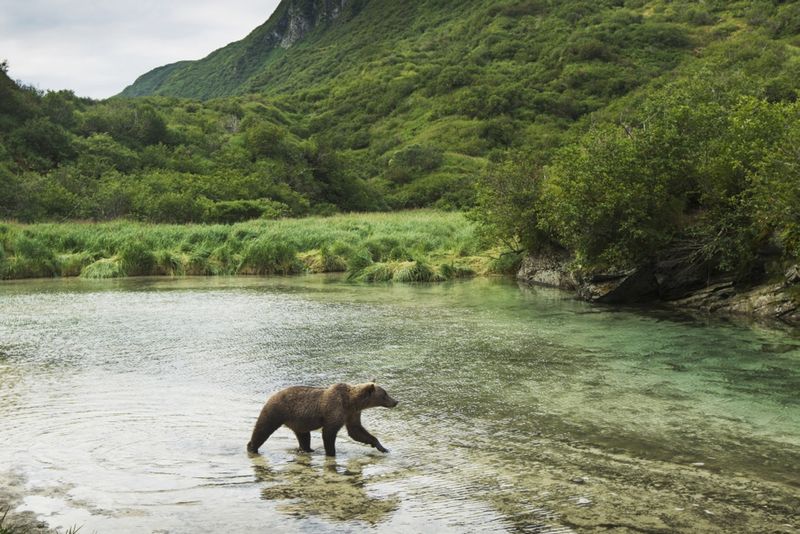
Bears, with their majestic presence, are best admired from a safe distance. Feeding bears, intentionally or not, can have dangerous consequences. These intelligent creatures quickly associate food with humans, leading to boldness and potential conflicts. Human food can disrupt their natural diet, causing health issues. In many areas, a fed bear becomes a dangerous bear, often resulting in relocation or euthanization. It’s vital to keep campsites and picnic areas clean and secure, allowing bears to thrive in their wild habitats.
Seagulls
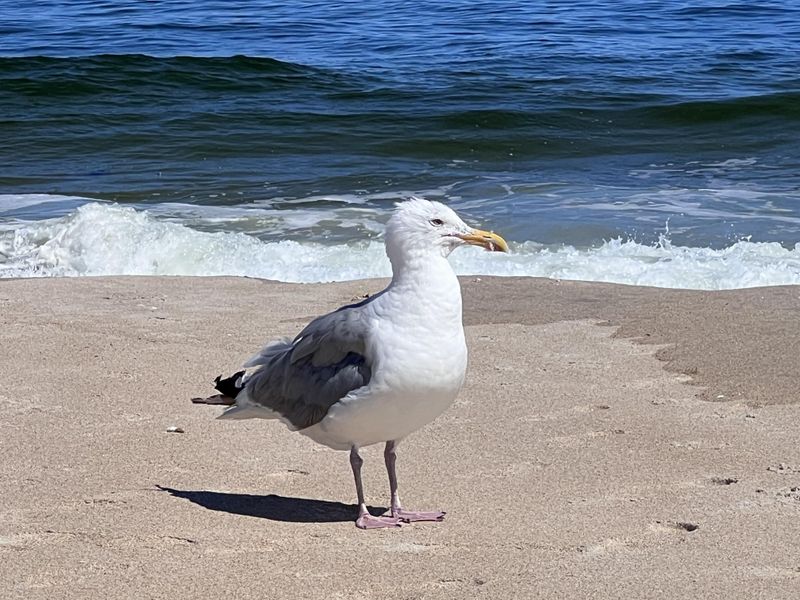
Seagulls, often seen as the opportunists of the shore, are adept at scavenging. Feeding them, however, can encourage aggressive behavior and dependency on humans. Human food disrupts their natural diet, leading to health issues. When seagulls flock to populated areas, they can become a nuisance, stealing food and littering the environment. To ensure these resourceful birds maintain their natural foraging habits, it’s best to enjoy them from a distance without offering treats.
Squirrels

Squirrels may seem like the quintessential backyard companion, eagerly nibbling on nuts and seeds. Yet, feeding them human snacks can cause nutritional imbalances and health problems. When squirrels become accustomed to being fed, they may lose their natural wariness of humans, leading to potential conflicts. To encourage their natural foraging behavior, it’s better to let them scurry through trees and gather the acorns and seeds nature provides.
Foxes

Foxes, with their keen eyes and bushy tails, are figures of folklore and curiosity. Feeding them can disrupt their natural hunting instincts, making them dependent on human food. This dependency can lead to health issues and increased encounters with humans, which may not always be safe. To respect the fox’s role as a cunning predator, it’s best to let them roam freely, allowing them to hunt for small mammals and birds as nature intended.
Coyotes
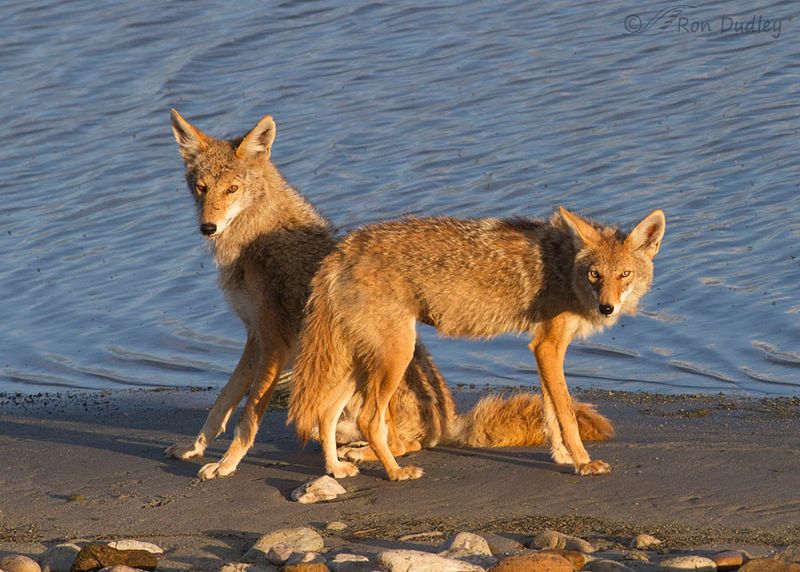
Coyotes are known for their adaptability and resourcefulness, often living near urban environments. Feeding them can cause serious problems, such as increased boldness and aggression. When coyotes associate food with humans, they may venture into neighborhoods, posing risks to pets and people. Their natural diet consists of rodents and small mammals, which helps keep ecosystems balanced. Therefore, it’s essential to admire these wild canines from a distance, allowing them to maintain their role in nature.
Pigeons
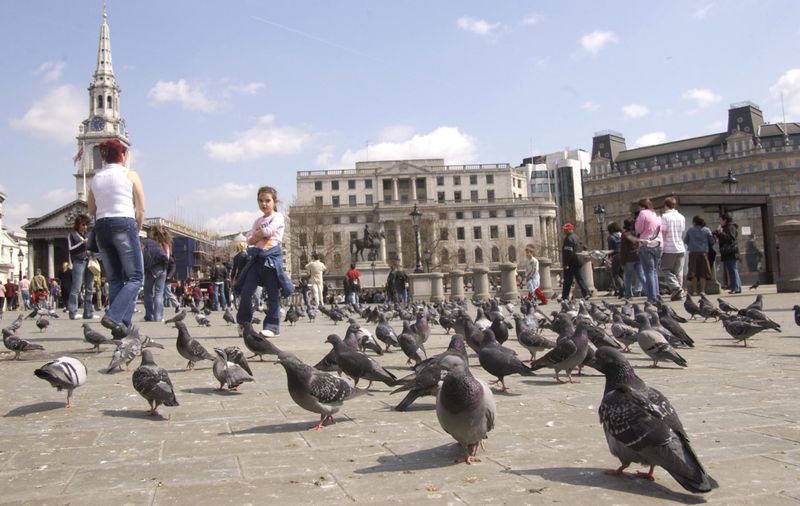
Pigeons, often dubbed “city birds,” are accustomed to urban life. Feeding them might seem harmless, but it can lead to overpopulation and health problems. Human food lacks the nutrition these birds need, causing potential diseases. Additionally, large flocks can become a nuisance, damaging property and spreading droppings. To help pigeons thrive naturally, it’s better to appreciate them as they navigate the cityscape, foraging for seeds and grains on their own.
Monkeys
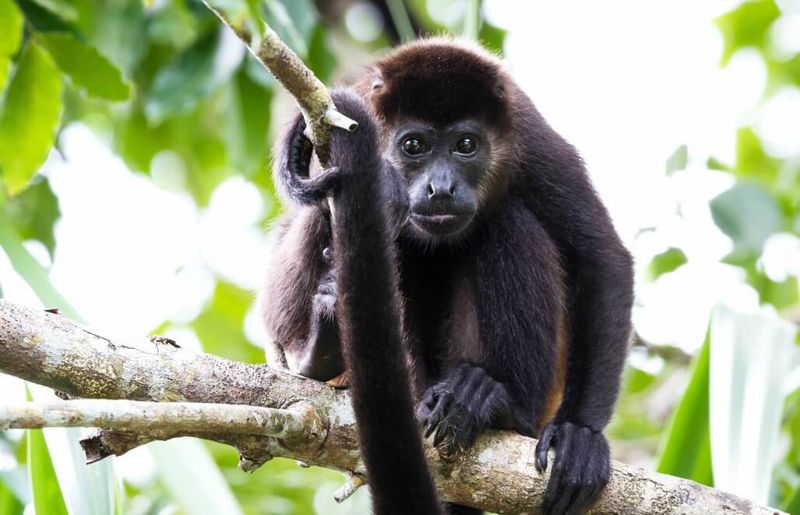
Monkeys, with their expressive faces and agile movements, are often seen as charming creatures. However, feeding them can have detrimental effects. Human food can cause nutritional deficiencies and aggressive behavior, as they compete for handouts. In many tourist areas, fed monkeys may become bold, stealing items and causing trouble. To protect their health and maintain natural behaviors, it’s important to avoid feeding them and let them forage for fruits and insects as intended.
Rabbits

Rabbits, with their twitching noses and fluffy tails, are often associated with gardens and meadows. Feeding them human food can disrupt their delicate digestive systems, leading to serious health issues. They thrive on a diet of grasses and leafy plants, which provide the necessary fiber for their well-being. When rabbits become dependent on human offerings, they may venture too close to roads or predators, endangering their safety. To ensure their health, it’s best to let them nibble on nature’s offerings.
Kangaroos
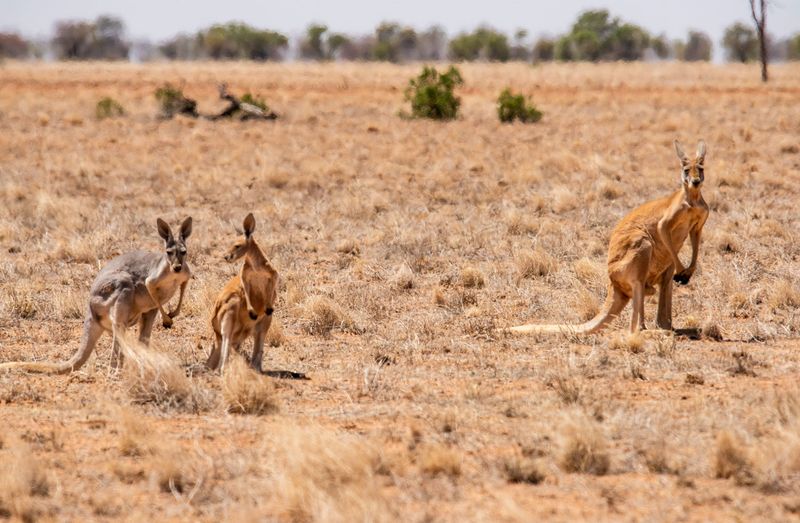
Kangaroos are iconic symbols of Australia, known for their powerful leaps and social behavior. Feeding them can lead to digestive problems and alter their natural social structure. Human food doesn’t provide the necessary nutrients they get from native vegetation. In tourist areas, fed kangaroos may approach humans, risking dangerous interactions. To appreciate these marsupials, it’s essential to observe them from a distance, allowing them to graze on native grasses and shrubs.
Elephants

Elephants, with their enormous size and gentle demeanor, are beloved by many. However, feeding them can lead to dependency and disrupt their migratory patterns. Elephants require a vast amount of vegetation, and human food cannot meet their nutritional needs. In areas where they are fed, they may become accustomed to human presence, leading to potential conflicts. To ensure they continue to roam freely and maintain their natural behaviors, it’s best to admire them from afar.
Penguins

Penguins, with their charming waddle and tuxedo-like appearance, are adored worldwide. Feeding them can interfere with their natural diet, which consists of fish, krill, and squid. Human food can cause health issues and disrupt breeding colonies. In areas where penguins are common, it’s crucial to respect their natural habits by not offering food. Admiring their social interactions and unique behaviors from a distance ensures they maintain their role in the ecosystem.
Turtles

Turtles, both land and sea, are ancient reptiles with specific dietary needs. Feeding them human food can cause digestive problems and nutrient deficiencies. On beaches, feeding sea turtles can lead to dependency and reduce their natural foraging skills. To protect their health and support conservation efforts, it’s important to leave turtles undisturbed, allowing them to seek out their natural diet of seagrass, algae, and invertebrates.
Wolves
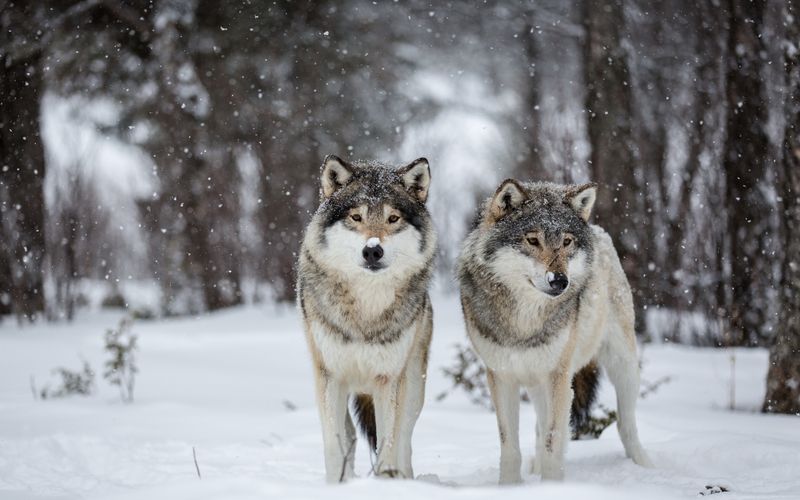
Wolves, with their haunting howls and pack dynamics, are often misunderstood. Feeding them can alter their hunting behavior and lead to dependency on humans. This dependency can cause conflicts, as wolves may approach human settlements in search of food. These predators play a crucial role in maintaining the balance of ecosystems by hunting large prey. To protect their natural behaviors and safety, it’s best to observe wolves from a distance, appreciating their wild nature.
Otters
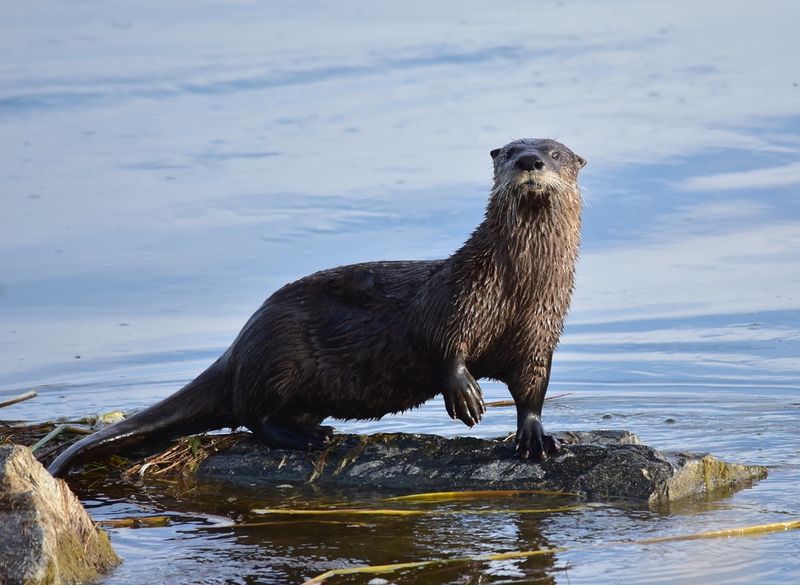
Otters are known for their playful antics and social nature, often seen in rivers and coastal areas. Feeding them can disrupt their natural hunting skills, leading to health problems. Human food lacks the nutrients they need, and dependency can result in reduced foraging behavior. Otters are expert hunters, catching fish and invertebrates with ease. To ensure they remain healthy and active, it’s best to watch their lively antics from afar, letting them thrive in their watery habitats.
Whales

Whales, the gentle giants of the sea, captivate with their massive size and grace. Feeding them can have dire consequences, interfering with their natural feeding habits. Human food does not provide the essential nutrients found in krill and small fish. Additionally, feeding whales can disrupt migration patterns and lead to negative interactions with boats. To safeguard these magnificent creatures, it’s essential to respect their space and allow them to follow their ancient migratory paths.
Giraffes

Giraffes, with their elongated necks and distinctive patterns, are a symbol of the African savannah. Feeding them can lead to nutritional imbalances, as their diet is rich in specific tree leaves. When giraffes rely on human food, they may alter their grazing habits, affecting their health. In wildlife reserves, fed giraffes might approach vehicles, risking injury. To admire these elegant creatures, it’s best to observe them from a distance, allowing them to forage naturally in their towering landscapes.

